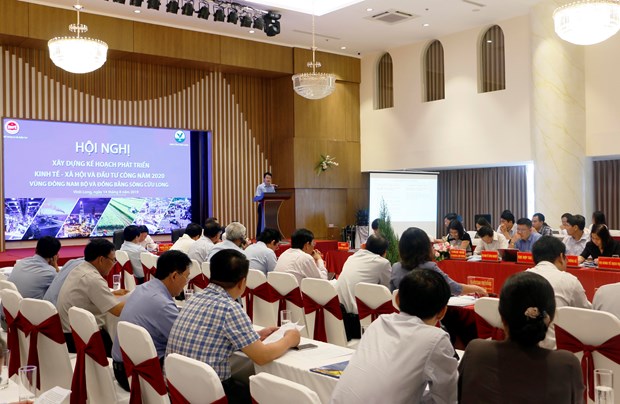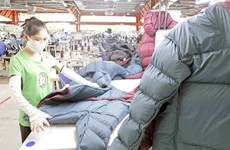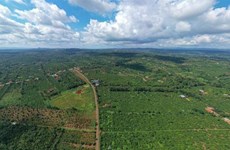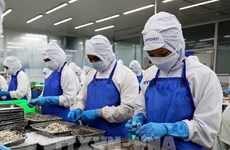Southeastern, Mekong Delta regions – national growth engines
The Southeastern and Mekong Delta regions together have contributed up to 63.7 percent of the national gross domestic product (GDP), Deputy Minister of Planning and Investment Nguyen Van Trung said on August 14.
 The conference in Vinh Long province on August 14 (Photo: VNA)
The conference in Vinh Long province on August 14 (Photo: VNA)Vinh Long (VNA) – The Southeastern and Mekong Delta regions together have contributed up to 63.7 percent of the national gross domestic product (GDP), Deputy Minister of Planning and Investment Nguyen Van Trung said on August 14.
Speaking at a conference in Vinh Long province, the official said the Southeastern region has affirmed its locomotive role in national economic development, accounting for 45 percent of the national GDP.
Meanwhile, the Mekong Delta plays a key role in ensuring national food security as it contributes half of the country’s total food output, nearly 70 percent of seafood export value and 90 percent of rice export volume.
The Ministry of Planning and Investment reported that in the first six months of this year, the gross regional domestic product (GRDP) of the Southeastern region grew 7.9 percent, higher than the national average of 6.76 percent.
Its budget collection was nearly 298.05 trillion VND (12.85 billion USD), fulfilling 49.73 percent of the yearly target, and export turnover hit 46.82 billion USD.
The region expects to complete all socio-economic targets set in 2019, according to the ministry.
However, disbursement of public investment capital remained slow, with only 25.35 percent disbursed as of July 30, lower than the national rate of 36.16 percent.
During the January-June period, the Mekong Delta’s GRDP expanded about 7.5 percent and export value was 8.84 billion USD, up 11 percent year-on-year.
The region’s budget collection hit a record high of about 54.8 trillion VND, completing 64 percent of the estimate.
Of note, the region attracted 110 new projects with total registered capital of 975 million USD.
It is expected to fulfill 11 out of 14 targets set for 2019 by provincial People’s Councils.
The region’s public investment disbursement rate was 38.59 percent, higher than the national average.
The ministry also pointed out limitations in the two regions regarding the increase of businesses suspending operation, overloaded transport, small-scale agricultural models and poor infrastructure, especially the transport system.
Delegates at the conference proposed orientations and solutions to fuflil socio-economic development plans in 2020.
They suggested amending and supplementing policies in support of investment in agriculture and rural development, and developing specific policies on infrastructure development, particularly transport, for the Mekong Delta.-VNA













